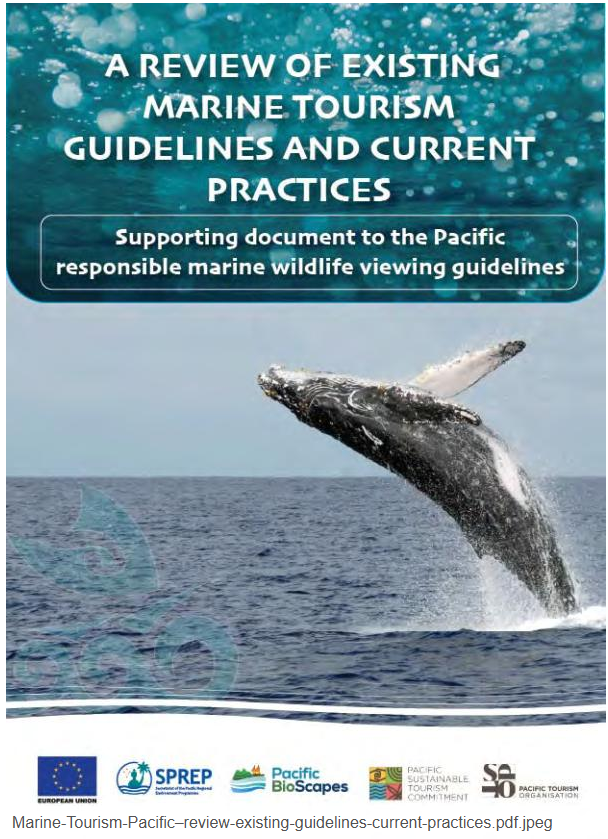
The Pacific Ocean is the largest geographic feature of planet Earth. The Pacific region is home to more than 38 million people1 who rely on it for economic, social and cultural wellbeing, and it is critically important to the global ecosystem. Coastal and marine tourism represents at least 50% of total global tourism.2 It is the largest economic sector for most small island developing states and coastal states, creating jobs and income for communities and foreign exchange earnings. Coastal and marine tourism is highly dependent on the quality of ecosystems to attract visitors. For many communities within the region, coastal and marine tourism forms a crucial part of their livelihood offering a variety of tourism products and experiences including scuba diving, snorkelling, interactions with marine animals, whale watching, fishing, kayaking, and other aquatic activities. The appeal of these offerings heavily relies on ecosystem quality, making them particularly susceptible to challenges such as climate change and biodiversity loss.














